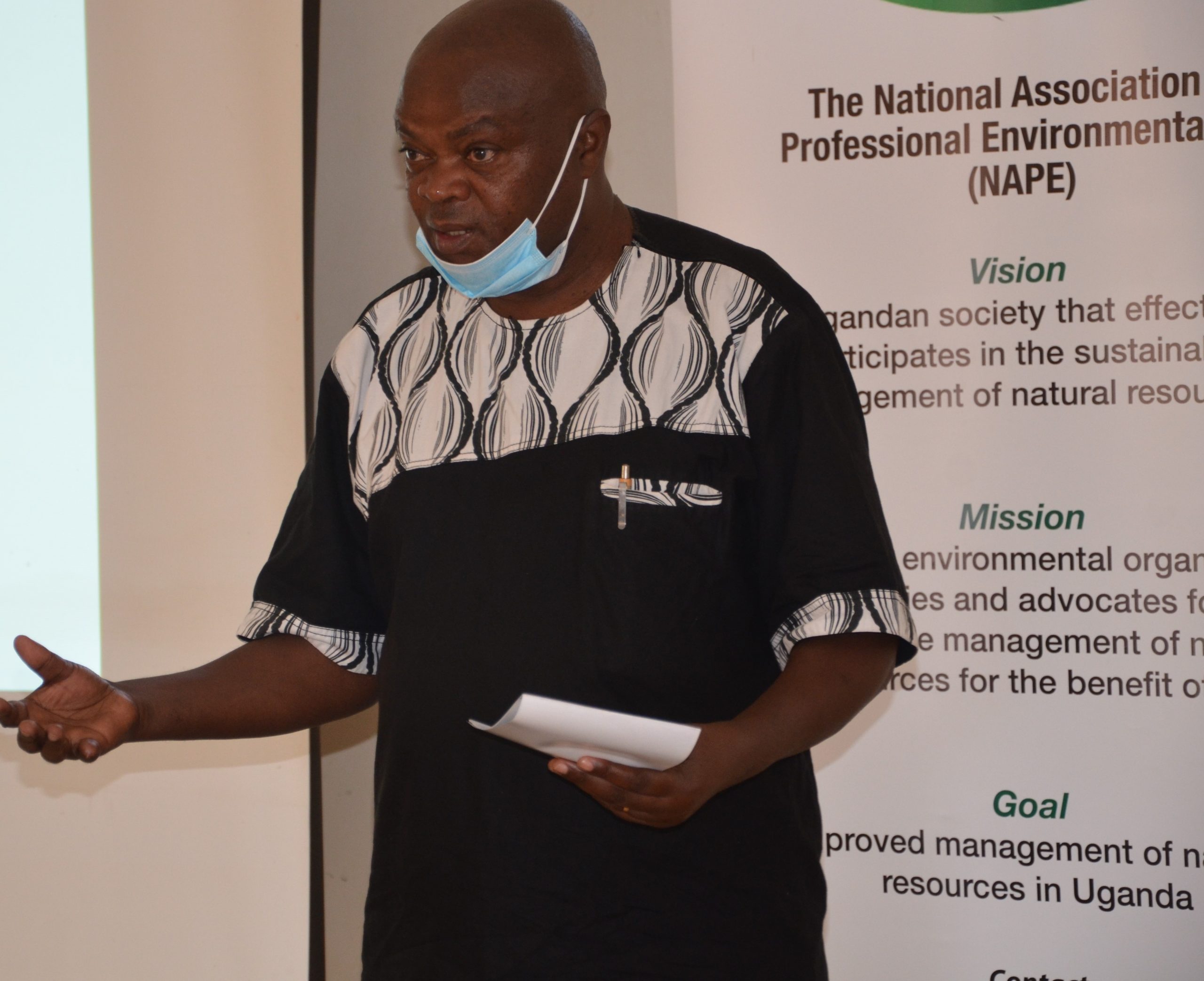Monday, March 15th, 2021 | By

National Association of professional Environmentalists (NAPE), partners and different stakeholders have launched a 2 year project aimed at regulating illegal logging.
The project, code named Food Agricultural Organization of the United the United Nations, Forest Law Enforcement Governance and Trade (FAO-EU-FLEGT) is aimed at monitoring Ugandan Forests by increasing the role of civil society in fighting illegal logging.
It will be implemented by NAPE in partnership with Field Legality Advocacy Group (FLAG), a Cameroonian organization that has expertise in Independent Forest Monitoring in Central and West Africa.
Frank Muramuzi, NAPE Executive Director and the FAO-EU-FLEGT project Lead expresses concerned about drastic climate change, caused by destruction of forest cover that needs to be protected through monitoring.
“Whether it is legal or illegal logging, our major concern is that the forests in Uganda are being degraded at a higher rate. I appeal to government to regulate and reduce on illegal logging”, said Mr. Muramuzi.
According to Bob Kazungu, Ministry of Water and Environment (MWE)-FLEGT focal point person, monitoring of forestry management has been taking place by Ugandan government institutions through routine M&E frameworks in place.
“Forest monitoring has been done to inform policy in many instances including checking on compliance to frameworks. We have been able to monitor remotely with Geographic Information Systems (GIS)”, Kazungu explained.
Kazungu illustrates that GIS allows forest monitoring parties to display and analyze graphic and tabular data by enhancing forest management that enable land owners and forest managers to evaluate and analyze the species diversity, age and size of timber, timber density or volume.
He says although the set approaches have not produced results in reducing on the loss of the plantation and deal with the identified issues of illegal logging, NAPE and other stakeholders are important in addressing the challenges faced in fighting illegal logging in Uganda.
David Kureeba, the Project Manager for Forests and Biodiversity at NAPE explained the purpose and engagements of the project and the activities that are in place to ensure forest protection across the country to independently monitor the forests.
“Different stakeholders are at the centre of reaching the information of reducing illegal logging to suit the forest monitoring strategy” Kureeba said.
FAO representative Dr. Charles Owachi, on behalf of the FAO Country Director -Dr. Antonio Querido, said illegal logging has been a threat to sustainable development but the role of civil society is important in the monitoring process.
European Union (EU) representative Jalia Kobusinge explained that whereas CSOs and Government sector have a different role to play, EU is extending initiatives that fight forestry challenges by raising awareness.
The project NAPE is implementing is funded by the European Union (EU), Food and Agriculture Organization (FAO), Field Legality Advocacy Group (FLAG) from Cameroon and Ugandan Government bodies in charge of forests.
Uganda’s forest and woodland cover stands at 24 percent of the total land area, equivalent to 49,000 square kilometers. Of these 9,242.08 km² is tropical rainforest, 350.60 km² are forest plantations and 39,741.02 km² is woodland but 30% of these areas are protected as national parks, wildlife reserves or central forest reserves.
Copyright ©2025 Community Green Radio . All Rights Reserved. Designed : Lwegatech